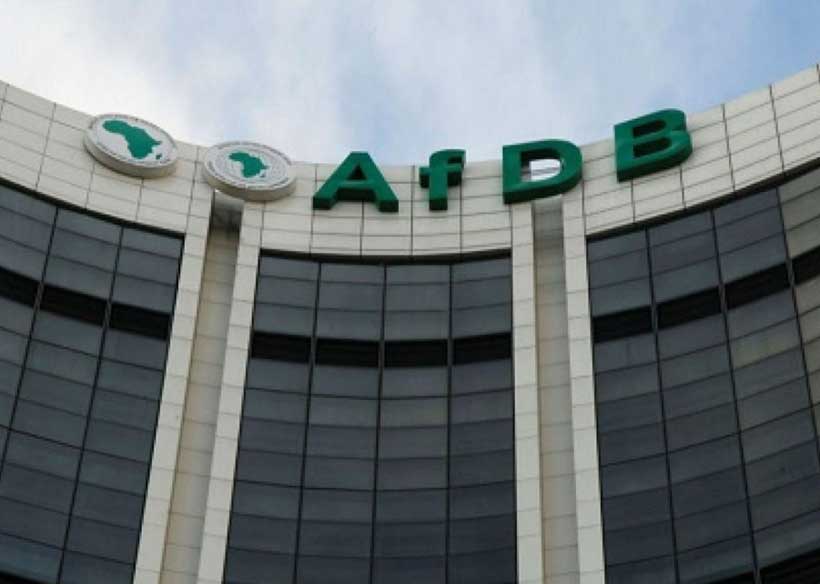AfDB Approves Landmark $139M Loan to Power Johannesburg’s Urban Renewal
The loan is dedicated to financing critical infrastructure upgrades in electricity, water, sanitation, and solid waste management, aiming to uplift the lives of over 6 million residents in South Africa’s economic hub.

- Country:
- South Africa
In a groundbreaking move for urban development financing in Africa, the African Development Bank Group (AfDB) has approved a ZAR 2.5 billion (approximately $139 million) corporate loan to the City of Johannesburg Metropolitan Municipality. This historic decision marks the first-ever direct subnational lending by the AfDB, operationalizing its Guidelines for Subnational Finance and paving the way for transformative, city-level infrastructure investment across the continent.
The loan is dedicated to financing critical infrastructure upgrades in electricity, water, sanitation, and solid waste management, aiming to uplift the lives of over 6 million residents in South Africa’s economic hub.
“This landmark transaction signals a new era in how the African Development Bank can empower cities,” said Solomon Quaynor, AfDB Vice President for Private Sector, Infrastructure & Industrialization. “By directly financing Johannesburg, we are unlocking a scalable model for subnational lending that enables multi-sectoral infrastructure delivery.”
A Strategic Investment in Urban Africa
The City of Johannesburg is not only South Africa’s largest city but also a vital economic engine, contributing 16% to the nation’s GDP. It serves as a gateway for investment and trade across Africa. However, Johannesburg faces severe infrastructure challenges:
-
Electricity distribution losses have averaged 30% annually over the last three years.
-
Water losses stand at an alarming 46.1%, undermining efficiency and service reliability.
This loan aims to address these persistent issues by funding over 100 carefully selected projects in four key sectors:
1. Electricity Infrastructure
-
Upgrade electricity distribution networks.
-
Install smart meters to curb losses.
-
Expand renewable energy capacity.
-
Connect 3,200 new households to the national grid.
2. Water and Sanitation
-
Rehabilitate aging water pipelines.
-
Upgrade wastewater treatment plants.
-
Reduce water losses from 46% to 37%, significantly improving system efficiency.
3. Solid Waste Management
-
Improve landfill compliance.
-
Expand recycling facilities.
-
Enhance waste collection, especially in underserved communities.
4. Revenue-Generating Trading Services
All projects will focus on revenue-generating infrastructure, ensuring sustainable debt repayment while delivering critical services to residents.
“Johannesburg is not just a city; it’s an urban engine of growth for Africa,” said Kennedy Mbekeani, AfDB Director General for Southern Africa. “By strengthening its infrastructure backbone, we're investing in Africa's urban future.”
Socioeconomic and Development Impact
The project is expected to deliver wide-reaching economic and social benefits:
-
2,869 jobs created during the construction phase.
-
592 full-time equivalent jobs, with 14% reserved for women and 23% for youth.
-
Reduced electricity and water disruptions, benefiting industrial productivity (notably, 65% of electricity and 5% of water use is industrial).
-
Enhanced free basic services for 160,000 indigent households.
-
ZAR 500 million in contracts designated for SMEs, with 40% for women-owned businesses and 50% for youth-led enterprises.
In addition, the Bank is seeking an additional $1.5 million grant through its Urban and Municipal Development Fund to support municipal reform, governance improvements, and climate-resilient planning—ensuring that infrastructure investments are inclusive, sustainable, and future-proof.
Strengthening Governance and Oversight
Recognizing the need for transparency and financial discipline, the African Development Bank has embedded robust safeguards into the project. These include:
-
Strict monitoring and evaluation frameworks.
-
Third-party oversight mechanisms.
-
Compliance and risk mitigation measures.
-
Assurance of sound financial management and reporting throughout the project lifecycle.
The AfDB aims to set a model for future subnational lending by building trust with local governments and demonstrating that cities can be both bankable and transformational actors in Africa’s development agenda.
“This historic transaction demonstrates the African Development Bank's commitment to supporting creditworthy cities as engines of economic growth,” Mbekeani added.
A Scalable Model for Africa
The Johannesburg loan reflects a broader vision of the AfDB: to empower cities and municipalities to take a central role in development financing, particularly in the face of rapid urbanization. With more than 50% of Africa’s population now living in cities—and that figure expected to double by 2050—urban infrastructure financing is no longer optional but essential.
This precedent-setting loan could unlock similar opportunities for other African cities, driving continent-wide urban transformation that is sustainable, inclusive, and responsive to local needs.
ALSO READ
Severe Cold Front to Hit South Africa: Authorities Urge Public to Brace for Impact
China's Strategic Push: New Financial Guidelines to Boost Consumer Confidence and Economic Growth
ICRA Report: Geopolitical Tensions and Market Volatility Threaten India's Economic Growth
Resilient India: Economic Growth Amid Global Turmoil
Empowering Women: A Boost from ADB for Pakistan's Economic Growth










